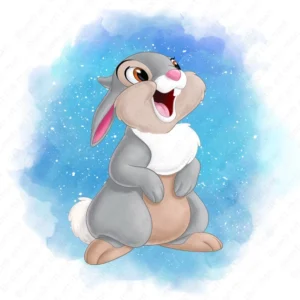 One day my 5th-grade teacher asked the girls in our class to follow her to the auditorium. We had no idea why. There we joined the other girls our age, and, after a brief introduction from one of the teachers, we watched a Disney-esque film about the birds and bees.
One day my 5th-grade teacher asked the girls in our class to follow her to the auditorium. We had no idea why. There we joined the other girls our age, and, after a brief introduction from one of the teachers, we watched a Disney-esque film about the birds and bees.
I don’t recall there being a question-and-answer session afterwards. We simply paraded back to our rooms where the boys were waiting for us. As I took my seat I noticed the boy behind me looking at me in an odd way. Was that a gleam in his eye? What was that about? I’m sure I blushed deeply when, with a knowing smile, he asked me where we’d been and I realized the boys had a lesson on the same subject while we were gone. I was so embarrassed I wanted to fall through the floor.
Maybe you had a similar experience. Remember how curious it felt to become aware of your body in a whole new way? How all sorts of puzzling things the adults and older kids said began to take on new meaning? How the boys and girls began to see each other from a perspective that wasn’t there before? If you’re like me, you, too, experienced a major epiphany upon your discovery of this unsuspected new dimension of life.
Developing heightened self-consciousness around the age of eleven is a universal experience. With bodily changes girls tend to start worrying about their hair, clothes and makeup; boys, about developing muscles, being strong and tough, and taking impressive risks. Both genders begin to define and judge their worth less by the individual interests they’ve been pursuing with innocent, unconscious abandon and more by their appearance and standing in the social pecking order. For some, this external focus softens with time and merges with inner realities into a comfortable balance. For others it sharpens into a life-long one-sided obsession.
Just as nature predisposes us to physical self-consciousness in early adolescence, Carl Jung discovered that it likewise draws our awareness to our interior lives as we approach mid-life. In response to my post, Making Connections, Sandy wrote that some of us hear and/or feel this “deep energetic calling to take the next step in the evolution of consciousness,” adding that for “those who have never learned or intuited that they can listen more deeply, it is difficult for them to understand the words that are being used by the other side. We’re actually speaking two different languages.” The difference between these languages is as marked and baffling as our pre- and post-eleven-year-old languages, and stepping into this new dimension is likewise a life-changing epiphany.
Sandy concluded with an observation about the global consequences of failing to balance the language of collective consciousness with the language of our individual souls: “Neither is right or wrong, but one will more likely allow all of life to be sustained for a longer period of time.”
You knew your soul’s language when you were ten. Then you did not yearn for a secret, solitary life of discord, dread, agitation, blame, guilt, exhaustion and self-disgust; you yearned for kindness and tender care, creativity and meaning, intimacy and partnership, joy and passion. Luckily, it’s never too late to remember your soul’s language and follow it into, in Sandy’s words, “a future that enlivens rather than frustrates and generates hopelessness.” I hope to see you there.

The Poison of Misogyny: Part III
In August of 1942, Walt Disney released the classic animated film, Bambi. When it was rereleased some years later, my mother took me on a





0 Responses
Beautifully done, Jeanie. I thoroughly enjoy your Inspiring thoughts and spiritual sustenance.
Charlie
Good morning, Charlie. Thank you for the kind words, especially “spiritual sustenance.” I like the idea of providing that, as long as one doesn’t interpret it to mean, “religious assurance.” I can’t offer any of that in any traditional way.
Jeanie
Keep doing what you’re doing, Jeanie. It’s wonderful.
I’ll try. Many thanks.
A new semantic may have been developed with this post, Jeannie: “Cosmic Puberty” 🙂 What an interesting analogy.
Thanks, Sandy
I love that! The majority of our species does appear to have progressed beyond Cosmic Puberty. Hopefully, the majority is almost finished with Cosmic Adolescence too, athough to look at the news it would appear a good amount of that kind of thinking still pervades our collective consciousness. Hopefully, these pockets of “immature” awareness are growing smaller and isolated enough that they will not continue to impede our collective growth into adulthood.
You’re very welcome! Thanks for the inspiration for this post.
Jeanie